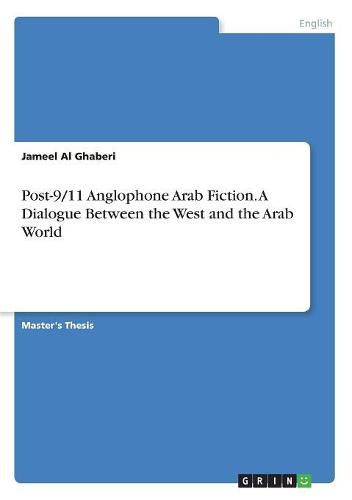Readings Newsletter
Become a Readings Member to make your shopping experience even easier.
Sign in or sign up for free!
You’re not far away from qualifying for FREE standard shipping within Australia
You’ve qualified for FREE standard shipping within Australia
The cart is loading…






This title is printed to order. This book may have been self-published. If so, we cannot guarantee the quality of the content. In the main most books will have gone through the editing process however some may not. We therefore suggest that you be aware of this before ordering this book. If in doubt check either the author or publisher’s details as we are unable to accept any returns unless they are faulty. Please contact us if you have any questions.
Master’s Thesis from the year 2016 in the subject English Language and Literature Studies - Literature, grade: 9.2, University of Hyderabad (school of humanities, centre for comparative literature), course: MA, language: English, abstract: This book is about Arab Anglophone fiction produced after 9/11 in the United States. It attempts to analyze how the writers of such a period portray the life of Arab Americans in a post-9/11 America. It shows how Arab Americans dealt with the consequences of 9/11. It reflects several aspects that characterize Arab American writing as a diasporic narrative, such as memory and home, racialization, anti-Arab sentiment and urgency of expression, and how Arab Americans responded to the terrorist attack of 9/11. The study also investigates the role of Anglophone Arab fiction in paving the way for more intercultural understanding and attempting to de-orientalize the Arab. What I found is that some writers often try to negotiate with the American culture in order to arrive at an identity that incorporates multiple elements from both the culture of origin and the host culture. Hybrid and cosmopolitan in their approach, such writers also attempt to be cultural mediators, and they show much concern about subverting the normative judgment and stereotypical image that has fixed the Arab American. Works of fiction produced by Anglophone Arab writers, such as Laila Halaby’s Once in a Promised Land, Rabih Alameddine’s The Hakawati, and Alia Yunis’ The Night Counter represented how Arab Americans faced difficulties after 9/11 in terms of identity construction, cultural identification, and the conflicting sense of belonging and non-belonging. These works genuinely depict the life of Arab Americans and give a better understanding of who Arabs are. They also interlink both the Arab culture and American culture, celebrating both cultural identities
$9.00 standard shipping within Australia
FREE standard shipping within Australia for orders over $100.00
Express & International shipping calculated at checkout
This title is printed to order. This book may have been self-published. If so, we cannot guarantee the quality of the content. In the main most books will have gone through the editing process however some may not. We therefore suggest that you be aware of this before ordering this book. If in doubt check either the author or publisher’s details as we are unable to accept any returns unless they are faulty. Please contact us if you have any questions.
Master’s Thesis from the year 2016 in the subject English Language and Literature Studies - Literature, grade: 9.2, University of Hyderabad (school of humanities, centre for comparative literature), course: MA, language: English, abstract: This book is about Arab Anglophone fiction produced after 9/11 in the United States. It attempts to analyze how the writers of such a period portray the life of Arab Americans in a post-9/11 America. It shows how Arab Americans dealt with the consequences of 9/11. It reflects several aspects that characterize Arab American writing as a diasporic narrative, such as memory and home, racialization, anti-Arab sentiment and urgency of expression, and how Arab Americans responded to the terrorist attack of 9/11. The study also investigates the role of Anglophone Arab fiction in paving the way for more intercultural understanding and attempting to de-orientalize the Arab. What I found is that some writers often try to negotiate with the American culture in order to arrive at an identity that incorporates multiple elements from both the culture of origin and the host culture. Hybrid and cosmopolitan in their approach, such writers also attempt to be cultural mediators, and they show much concern about subverting the normative judgment and stereotypical image that has fixed the Arab American. Works of fiction produced by Anglophone Arab writers, such as Laila Halaby’s Once in a Promised Land, Rabih Alameddine’s The Hakawati, and Alia Yunis’ The Night Counter represented how Arab Americans faced difficulties after 9/11 in terms of identity construction, cultural identification, and the conflicting sense of belonging and non-belonging. These works genuinely depict the life of Arab Americans and give a better understanding of who Arabs are. They also interlink both the Arab culture and American culture, celebrating both cultural identities